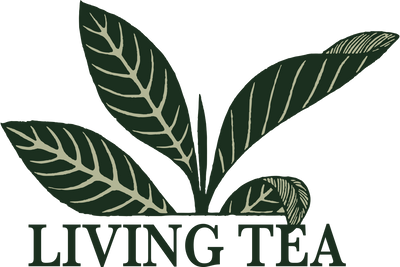As the days grow shorter, we are all finding ourselves adjusting to less light and lower energy. While living in harmony with the seasons is our guiding principle here at Living Tea, the reality is that we can’t all go into hibernation during the colder months.
I am often asked about my morning practices and routine, from the perspectives of physical health and Chinese Medicine to the Taoist practices that keep me aligned with my values and priorities. Read on below for my daily practice and how I adapt it for Winter, the season of the Water element.
My Morning Routine
6:30am - Wake up and start the day with a glass of water with lemon and herbal tinctures appropriate to the season, or for what I notice in my body and mind. Consistent healthful habits and daily nourishment are a cornerstone of Chinese Medicine, which centers on the optimal well-being of the entire body-mind system, rather than only intervening in times of disease.
6:45am - Fill the kettle with water and choose cha xi, the "tea stage," or table setting. This might be based on the element of the season or just on how I'm feeling. The cha xi is the foundation upon which our tea practice rests, both literally and metaphorically, and this simple ritual (similar to building an altar or creating a piece of artwork), makes tangible the intentions and values of ourselves and our tradition.
7am - Seated meditation, typically Zazen or Vipassana, for 30 minutes or longer. As we slow down for Winter, we play with sitting for longer periods of time, with no distractions. The depth of the Water element invites us to explore concepts of fear and willpower.
7:30am - Put the heat on the kettle and write. The Five Elements and the Five Seasons provide endless insight and contemplation for me. After meditation and before work begins is the time when I have the most clarity on how these systems work and weave together with tea practice, different Buddhist philosophies, and the work we do at Living Tea. In recent months I've been focusing on the 16 Bodhisattva Precepts and how they align with the cycles of life.
7:30-8am - Drink tea, sometimes read a bit. Winter's slower pace is a great time for boiled tea.
8am - Stretch and practice some moving meditation, these days usually Qi Gong or some variable resistance training. In the warmer seasons, this is when I'll go for a long run in the mountains, take a cold plunge in a river, and practice Qi Gong and the Way of the Rope out in the forest. But Winter invites us to relax and move more slowly.
Shifting our movement practices accordingly prevents the tension of trying to force ourselves into certain routines on days when we have the low energy of Winter. Slower movement also invites us into meditation and contemplation, synchronizing with the Water element, which always finds the lowest ground and the most effortless way of flowing. To support kidney health in Winter, keep the low back warm and stretched out. Deep belly breathing (hara breathing) builds core strength, and spinal twists keep the spine strong and healthy.
9am - Cold shower to boost circulation and awaken the senses.
9:15am - Spend time with my son Linden, my greatest teacher.
Usually around 11am - Make a smoothie with our Immunity and Longevity Blend or a plant-based protein powder. Get down to work.
Foods and Herbs for Winter
Blue and black foods correspond to the Water element and the kidneys, and blue foods in particular reduce heart disease and diabetes, and lower blood pressure. Black and blueberries, black grapes, plums, figs, prunes, raisins, veggies include eggplant, black sesame see, purple potatoes, blue corn, black rice. Make soups with dark miso, soy sauce, seaweed, and tamari - salty flavor is associated with kidneys and Water. Drink more water, and good quality water.
Anthrocyanins like those found in Gateway of Spirit prevent urinary tract infections (Water element) and are loaded with antioxidants. They also help with coordination and short term memory as we age.
Herbs: Himalayan sea salt, ionic trace minerals, cranberry juice for the urinary tract, colloidal silver, and garlic to combat infection, VSL3- priobiotic for gut health and immunity, uva ursi for bladder health, plus kegels and core work.
Kidney herbs: lots of water, nettle, dandelion, he shou wu, ginseng, astragalus, and angelica sinensis. Our Immunity and Longevity Blend is largely focused on kidney health for longevity.
Teas for Meditation
During the winter we tend to drink aged shou and sheng puerh, malty Yunnan red teas, strong yencha rock oolong, heavily oxidized and dark, aged oolong. These teas are rich, full-bodied, flavorful, grounding, earthy, vegetal and deep. Aged teas are warming in the body, which is helpful during the colder months. Aged shou and sheng puerh support digestion, which is helpful as we eat heartier meals during the winter. Further, we often drink tea later in the day during the colder months because we spend more time indoors. Shou puerh and rich sheng puerh facilitate quietude, reflection, and relaxation, which are ideal states as we wind down for meditation. Red teas tend to be more moving and enlivening, so we drink them on cold mornings when we feel sluggish or when the limited activities of winter are creating stagnation in the body.

